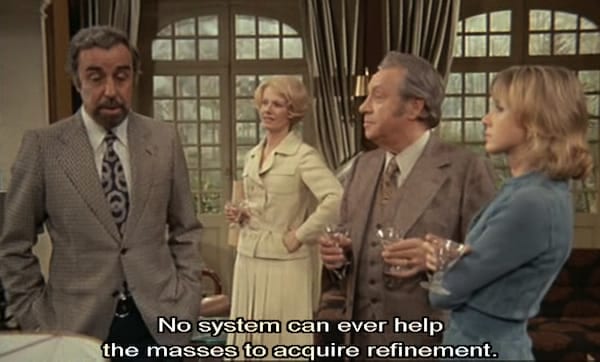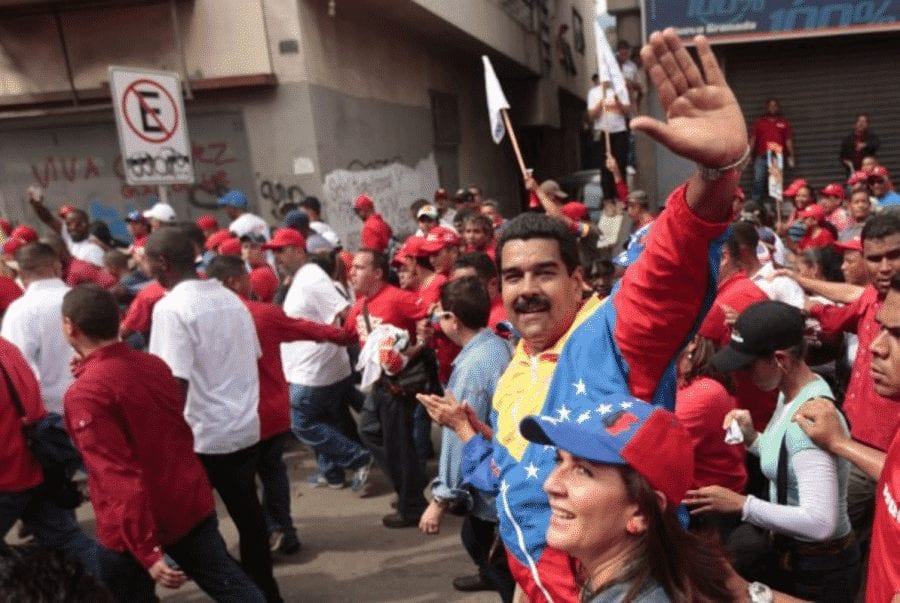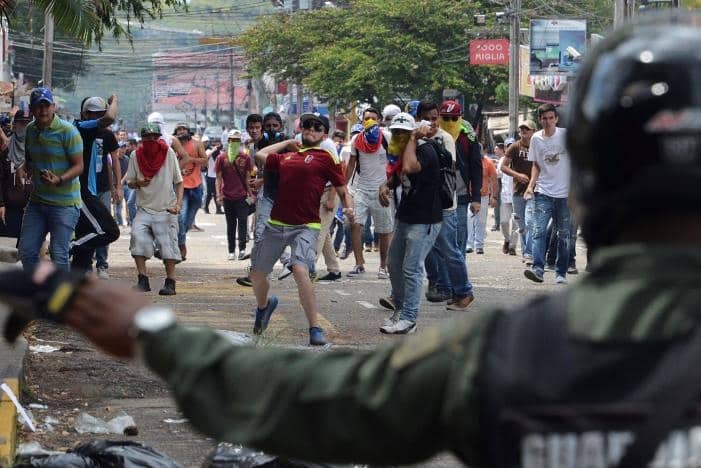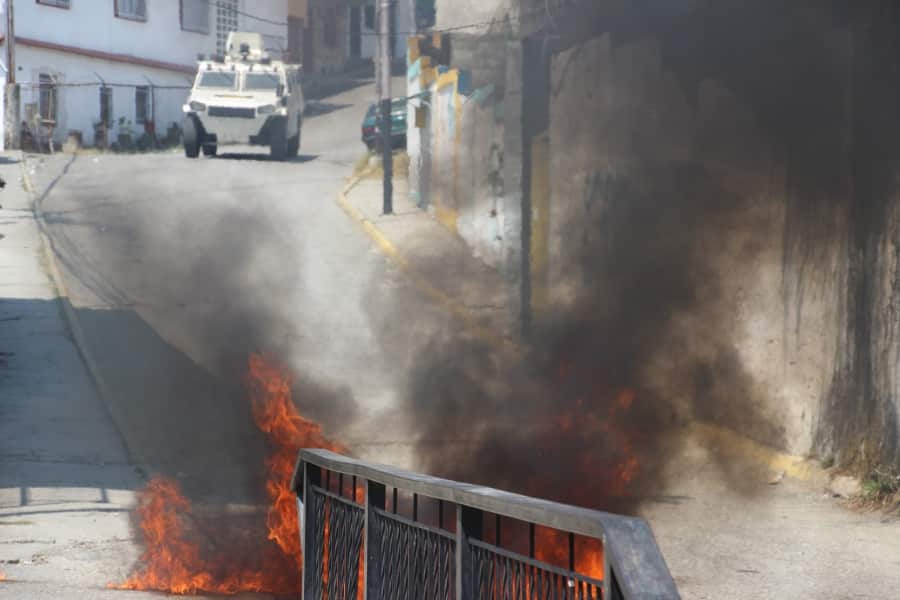Revisiting Revolutions, a Comparison
 After a fitful fever (1) of debates and round-tables, often packed with common sense and sometimes with uncommon nonsense, the dust of antique time (2) may gradually settle on the memory of the 1917 Russian Revolution.
After a fitful fever (1) of debates and round-tables, often packed with common sense and sometimes with uncommon nonsense, the dust of antique time (2) may gradually settle on the memory of the 1917 Russian Revolution.
In 2117, assuming but not given that schools may still teach history, a question in a standardized test may read, “Which of the following countries is associated with the 1917 Revolution? (mark one) – Bangladesh, Denmark, Russia, Vanuatu, Uganda.”
But this year the controversy was still agitated with great vehemence, and some disputants seemed to be walking upon ashes under which the fire is not yet extinguished – especially those addicted to the radicalization of inequality. Anti-egalitarians, corrupted by ill-gotten wealth, and fearful of even a remote threat to their privileges, employed all the force of ingrained malevolence and sarcastic contempt to berate the event and its memory.
On the other hand, sections of whatever is left of the Left of old, continued to pace through their dialectical labyrinths, and to argue whether the shortcomings of the revolution were Stalin’s fault for having confined Communism to one nation, instead of striving for global Communism, as advocated by Trotsky.
It should be noted that while people make history, their lives (of Lenin, Stalin, Trotsky, Nicholas II, Kerensky, etc.), can only be reliably written from personal knowledge, which grows less every day, and in a short time is lost forever. Unfortunately what is known in the present (I refer to the actual times of the Russian Revolution) can seldom be immediately told; and when it might be told, it is no longer known. With the obvious conclusion that historical truth can be at best acknowledged in the gross, with much latitude left for conflicting interpretations.
In the circumstances, rather than telling my twentyfive readers what they already know or have already heard, I will here examine the mechanism, the similarity, the differences and the circumstances that affected the major revolutions that we know of – however narrow be the limits of a blog.
Two different situations may break up a regime. Skepticism may alter established beliefs and disrupt mental habits. If so, only naked power can maintain social cohesion. Or a new ideology, involving new modes of thought, filters through the minds at large. Eventually, the new ideology becomes strong enough to establish a government in tune with the new convictions, replacing those become obsolete.
If so, the new revolutionary power is different both from traditional and naked power. The adherent of a new ideology are not (usually), power-grabbing adventurers. Their effects and actions are more important and more permanent.
The first revolution of our era, historically defined as Christian, has indeed to do with Christianity, considered as a social organization rather than a religion. From what we know, at its inception, Christianity was apolitical, a characteristic of most small sects. But the Christians gradually increased in numbers, and the Church in power. They became a group and group-power directly or indirectly ends up influencing the State.
[dropcap]W[/dropcap]hy emperor Constantine converted to Christianity is unknown – which is why myth is a tolerable substitute for uncertainty of information – in the instance, the appearance of the Cross in the sky, during Constantine’s victorious battle against Maxentius in 312 AD.
That myth, however, also means that Christianity had become influential. And given the antithetical difference between the doctrines of the Church and of the Roman State, Constantine’s adoption of Christianity as a state religion, may be the most important revolution in the history of Western civilization.
Luther could not succeed in his struggle without the support of secular princes. Which explains why the Lutheran Church remained always loyal to non-Catholic princes.
As an example, the revolutionaries of the “Peasants’ War”, erupted in Germany shortly after the Reformation, appealed to the Gospels for the relief of oppression. But Luther firmly opposed them, and inveighed against those who wish to “strike, smite, strangle and stab” established authority. And a “(reactionary) prince can better merit Heaven with bloodshed (of the peasants), than another prince who instead uses prayer.” He also added, “No one should think that the world can be ruled without blood. The civil sword shall and must be red and bloody.”
Tawney, author of “Religion and the Rise of Capitalism” wrote,
“… the axe takes the place of the stake. The maintenance of Christian morality is to be transferred from the discredited ecclesiastical authorities to the hands of the state. Skeptical as to the existence of unicorns and salamanders, the age of Machiavelli and Henry VIII found food for its credulity in the worship of that rare monster, the God-fearing Prince.”
As a result of the Reformation, the Church ceased to exist as an independent power and it became part of the machinery enforcing submission to the secular government. Then, through its Calvinist strain, the Protestant Revolution further evolved and ended by giving social and theological grounds and reasons for the triumph of capitalism.
History has a long tail – it’s not hard to see a Calvinist connection in the addition of “under God” to the American dollar bill, in 1954.
The inventive Henry VIII, by making kings and queens of England the keeping equivalent of Rome’s pope and popesses, made religion secular and national, while keeping most of the rituals that previously helped maintain obedience to the Catholic Church among the masses.
It followed that in England the king could alter dogmas essentially at will and execute those who objected. The attendant dissolution of the monasteries increased the crown’s revenue, which also proved useful to repress revolts by rewarding the repressors.

Henry VIII: a dangerous and treacherous fellow, like most medieval potentates. Compared to modernity, things haven’t changed that much, as corruption and self-seeking continue to rule the power game albeit with a touch of democratic “dilution”.
In comparing the Church of England with the Church of Rome, the king was functionally equivalent to God, while the Archbishop (of Canterbury), performed the Papal function – in Rome the Pope served God, but in England the king was God. A setup that proved the job of any Archbishop of Canterbury to be quite hazardous to his life and safety.
Henry VIII’s penchant for changing wives, and his quarrel with the Pope for refusing to annul his marriage with Catherine of Aragon, have obscured a more important issue. Namely the similarity or even identity, in England, of the root causes of the Reformation Revolution that had just occurred in Germany. Namely, the corruption of the Church, in turn associated with its wealth and the independent administration of that wealth.
But those who hoped that the English Reformation be true to its reforming objectives were sorely disappointed. The dissolution of the monasteries was similar (allowing for changes in time and circumstances), to the rape of the Soviet resources in 1991, literally stolen by sordid profiteers, instantly turned billionaires.
In England, the wealth of the dissolved monasteries attracted a similar strain of profiteers, thieves, greedy merchants, speculators and usurers, who drove the majority into poverty and despair, especially those employed in agriculture. Rebellions comparable to the Peasants Wars in Germany were quickly crushed in blood.
The original sincere Reformers could not believe their eyes. Martin Bucer, tutor of Edward VI, Henry VIII’s son who briefly reigned before dying of illness, wrote a manual for the young king. Appalled at the turn of events, Bucer outlined in the manual what an orderly reformed kingdom should be. Just one quote is illustrative,
“It (the kingdom), is to take a high line with the commercial classes. For, though trade itself is honorable, most traders are rogues – indeed, next to sham priests, no class of men is more pestilential to the Commonwealth.”
Make minor lexical changes and it’s like reading about Wall Street.
Still, the religious arrangement with the King as God was shaky, but then with Elizabeth I, it became necessary to defeat Spain, a very Catholic empire – wherefore Church-of-England Protestantism become associated with a new form of nationalism.
A few decades later, the Left, represented by Cromwell, sprang into action, leading to the English Revolution and the Civil War of 1642-1648. Though Cromwell’s Protectorate was defeated and King Charles II returned, the situation could not satisfy the growing number of Independents who rejected both State and Church as theological authorities.
They claimed the right to private judgment and religious toleration. That ideological trail led to a revolt against secular despotism. Hence the Glorious (English) Revolution of 1688. ‘Glorious’ because England was still tired from the Civil War and the shift from the Stuarts to the Hanoverian (German) royal dynasty was essentially bloodless.
But if everyone has a right to his own theological opinion, may he not have other rights as well? How far could a government intrude into the life of an individual? These ideas, developed and matured in the 18th century, issued in the Rights of Man. Those very ideas, already carried across the Atlantic by Cromwell’s defeated followers, were embodied in the American Constitution by Thomas Jefferson, and were brought back to Europe via the French Revolution.

The British’s hatred and fear of Napoleon (shared by the rest of the crowned heads of Europe and passed on as a value to America) was like today’s hatred of communism by the privileged classes. Napoleon and the threat of spreading French revolutionary ideas, was for a while what Lenin, Stalin, Mao and Castro, represented to the wold’s plutocrats in our time. The anti-Napoleonic propaganda generated by the British against Napoleon has even informed several Hollywood movies.
In a sense, the French Revolution was the Revolution of the Rights-of-Man. It produced a bloody Civil War, just as the Civil War in Russia that followed the 1917 Revolution. And, just as in Russia, foreign powers gathered their forces to defeat the French and their new ideology.
They finally succeeded at Waterloo, but unlike in England immediately after Cromwell, the restoration of the old regimes did not go according to plan. For by 1848, the Rights-of-Man movement transformed itself into nationalism, in Germany and throughout Europe. And in the end, the idea of nationalism overpowered that of the Rights-of-Man. Overpowered, but not dead, for we still enjoy today the freedoms it helped to win. Including the principle that no man should be deprived of life or liberty without due process of law.
Similarly, the forces of reaction managed to end the Soviet Union and to reduce Russia for a while to the brink of starvation. But the spirit of egalitarianism that was the cornerstone of the USSR is not dead.
To ensure that it is, the usual spit-lickers, on the occasion of the 1917 anniversary, have resurrected the ghost of Stalin’s repressions, that caused “100 million victims” – one pundit said. Citing millions of unsubstantiated victims for political purposes is established practice.
Nor they spared nonsense and deformations about life conditions in Eastern Europe, as if they had been better before the Revolution, under Czarist, Hapsburg, or Ottoman autocracies. While conveniently omitting that currently, in Eastern Europe, there is some longing for the older times and remorse for having believed as true what proved false about the West.
Nor mention was made of the structure of advanced societies and the social protections developed during the XXth century. Protections and social advancements that owe their existence to the presence of a Communist entity. Entity powerful enough to frighten the ruling bourgeoisies into granting concessions otherwise impossible. Proof being that as soon the USSR was gone, the same bourgeoisies have launched a furious aggression against the previously conquered rights.
Looked-at in the same spirit adopted with those previously reviewed, the Russian Revolution preached doctrines, like early Christianity, which were international and, at least at the beginning, anti-national. Like Islam, but unlike Christianity, the Revolution was essentially political and it challenged Liberalism.
Paradoxically, until 1917, only reactionaries challenged Liberalism. Marxists advocated democracy, free speech and free press. But when the Soviet Government seized power, it adopted the teachings of the Catholic Church in its days of splendor. Namely that it is the business of authority to propagate truth, by positive teaching and by suppressing rival doctrines.
Invitably, this led to establishing an undemocratic dictatorship in the name of democracy. Though we should consider that the Western bourgeoisie kept Russia under siege, but for the short and brutal five years of WW2.
For what is worth, historians who make a living by repeating the establishment’s line, usually omit referring to the conditions arising from a siege mentality. Equally, they conveniently disregard some social and psychological traits, uniquely Russian, which had a significant weight in the prelude, the preparations and the denouement of the 1917 Revolution. Those interested may watch my video of the “Historical Sketches” series, “The Historical Roots of Russian Communism – part 1”
Also, new and unique to the Russian Revolution was the amalgamation of political and economic power, which gave unlimited rein to government control. On the other hand, the Revolution’s rejection of Liberalism was extraordinarily successful and enthusiastically imitated, in Italy at first and then in Germany, thanks to Mussolini and Hitler. And even in countries that remained ‘democratic’, Liberalism lost much of its popularity.
For example, true Liberals maintain(ed) that if terrorists destroy public buildings, a serious effort should be made by the police and the law courts to discover the actual culprits. The new political executive(s) of the 1930s believed that the guilt should be attributed, through manufactured evidence, to whatever party, personality or state they dislike. As it happened with the fire of the Berlin’s Reichstag.
But in similar circumstances, the American neo-Liberals, when dealing with 9/11, behaved very un-liberally – when they attributed to 19 Saudi bunglers the organization and implementation of the operation. An operation that could be conducted only by a State or Entity with a direct interest in its bloody and apocalyptic success – and with sufficient weight, power and cover, already established in the targeted country, to make the venture feasible.
In summary, we can say that, common to all revolutions, the impetus to reform springs in every age from realizing the contrast between the external order of society and the moral standards recognized as valid by the conscience or reason of the individual.
Finally, a (probably) neglected point of personal psychology. When Mark Twain said that “In all matters of opinion our adversaries are insane,” he said more than he thought he did in jest.
For it may happen that after reaching our personal conclusions on historical, social or psychological matters, we may say to ourselves, “yes… but,” or “yes… however.” That ‘but’ or ‘however’ are the Doors of Doubt. And here doubt is the tip of a curiously slippery slope.
It starts with “There is nothing is either good or bad, but thinking makes it so” (Hamlet). It continues with “Truth is in the eye of the beholder” (anonymous), “Truth is a matter of style” (Oscar Wilde), “There are no facts but only interpretations” (Nietzsche) etc. And at the bottom of the slide we find Pascal’s “To understand everything is to forgive everything.” Which, following Pascal’s discovery to its logical conclusion, makes a mockery of our established notions of good and bad, and of good and evil.
In a similar spirit, at the end of our brief meditation on past revolutions, readers may concur with the idea that history resembles the number π (‘pi’), where every new added digit increases accuracy without reaching precision, for π is an irrational number, with an infinite number of decimals.
Just like any new addition to our historical knowledge, augments perspective without nearing truth – one of the several paradoxes of life. Paradoxes that tend to fill an individual with uncertainty or anxiety, and at times make him feel “like one upon a rock, surrounded with a wilderness of sea, who marks the advancing tide grow wave by wave, expecting ever when some envious surge will, in its brinish bowels, swallow him.” (5)
Which may be why many prefer dogmatic certainty to articulate uncertainty, even when certainty is absurd.
Reference:
** 1. Macbeth
** 2. Coriolanus
** 3. King Henry V
** 4. Hamlet
** 5. from Titus Andronicus
Image Source: goo.gl/Ck3yz2
 Jimmie Moglia is a Renaissance man, and therefore he's impossible to summarize in a simple bioblurb. In any case, here's a rough sketch, by his own admission: Born in Turin, Italy, he now resides in Portland, Oregon. Appearance: … careful hours with time’s deformed hand, Have written strange defeatures in my face (2); Strengths. An unquenchable passion for what is utterly, totally, and incontrovertibly useless, notwithstanding occasional evidence to the contrary. Weaknesses: Take your pick. Languages: I speak Spanish to God, French to men, Italian to women and German to my horse. My German is not what it used to be but it’s not the horse’s fault. Too many Germans speak English. Education: “You taught me language and my profit on it Is, I know how to curse.” (3); More to the point – in Italy I studied Greek for five years and Latin for eight. Only to discover that prospective employers were remarkably uninterested in dead languages. Whereupon I obtained an Engineering Degree at the University of Genova. Read more here.
Jimmie Moglia is a Renaissance man, and therefore he's impossible to summarize in a simple bioblurb. In any case, here's a rough sketch, by his own admission: Born in Turin, Italy, he now resides in Portland, Oregon. Appearance: … careful hours with time’s deformed hand, Have written strange defeatures in my face (2); Strengths. An unquenchable passion for what is utterly, totally, and incontrovertibly useless, notwithstanding occasional evidence to the contrary. Weaknesses: Take your pick. Languages: I speak Spanish to God, French to men, Italian to women and German to my horse. My German is not what it used to be but it’s not the horse’s fault. Too many Germans speak English. Education: “You taught me language and my profit on it Is, I know how to curse.” (3); More to the point – in Italy I studied Greek for five years and Latin for eight. Only to discover that prospective employers were remarkably uninterested in dead languages. Whereupon I obtained an Engineering Degree at the University of Genova. Read more here.
The Unraveling of the US State
Born in genocide and slavery, the U.S. state “can neither reform itself out of economic crisis without attacking the poor, nor manage the exploitation of the oppressed without intensifying state repression.” U.S. imperialism has devolved to a permanent state of war — and war fatigue. The population is pauperized as “capitalist competition and consolidation lead to the permanent replacement of large sections of the workers and uncontrollable under-consumption.”
“Nothing illuminates the unraveling of the US state better than the anti-Russian hysteria that has engulfed Washington.”
The role of the state in an imperialist society is to enact organized violence against the oppressed classes for the benefit of the oppressor class. The state is often defined as “government,” but it is much more than that. Organized violence doesn’t merely stem from the politicians placed into power by the oppressor class. Violence against the oppressed is wielded through armed bodies such as the police and the military. The media is another arm of the state tasked with enforcing the consent of the governed. Under imperialism, every institution of the state works together to ensure that the profits of the rich are protected and bolstered.
The US state enacts violence on behalf of the global imperialist system. And no other society in the history of the imperialist system can match the scale and frequency of the violence that is directed by the US state. For over two centuries, the US state has protected the wealth of a small class of capitalists whose roots are firmly planted in the enslavement of Africans and the mass murder of the indigenous people in the Western hemisphere. Consistent capitalist development amid periodic crises eventually led to the US state taking the lead in global affairs, especially after Europe was decimated by the Second World War. But just like all stages of political economy, US imperialism has reached its terminal stage.
“Under imperialism, every institution of the state works together to ensure that the profits of the rich are protected and bolstered.”
The US state has begun to unravel as a result. Nothing illuminates the unraveling of the US state better than the anti-Russian hysteria that has engulfed Washington. The US state’s headquarters has spent most of the last year or so investigating US President Donald Trump’s alleged ties to the Russian Federation. Allegations of Russian meddling in the 2016 elections have yet to be verified with definitive proof. The US state has desperately sought to keep the narrative alive by inciting the accusation against the Trump Administration whenever it interacts with Russians. Impeachment talks have resurfaced after information leaked from the bowels of the New York Times regarding a meeting held between Trump’s son and a Russian lawyer last year. The two parties allegedly discussed incriminating information against Hillary Clinton’s campaign.
Yet no such information is needed since Hillary Clinton’s political career is rife with examples of criminality. What is really at stake is the stability of the imperialist system as a whole. The US state has lost control over its political apparatus. Neither Bernie Sanders nor Donald Trump were supposed to lead successful campaigns. Trump’s victory represented a nightmare for the US state, and not because of his billionaire status or his racist, demagogic character. His rise to formal political power exposed the US state’s deep crisis of legitimacy.
“The US state has lost control over its political apparatus.”
The US state’s crisis of legitimacy is ultimately a reflection of a deeper economic and political crisis. High-tech, finance dominated capitalism has reached a point where the contradiction between productivity and profit cannot be reconciled. And it is the condition of workers that has suffered the most. According to Shadow Stats, real unemployment remains stagnant at 22 percent if discouraged workers are taken into account. Capitalist competition and consolidation has led to the permanent replacement of large sections of the workers and uncontrollable under-consumption. Half of the population makes less than 30k per year and cannot afford a $500 emergency. But the system is more technologically advanced and productive than ever, which has precipitated a state of stagnation never before seen in capitalism’s history.
The economic condition of the system has left the US state in a desperate condition itself. Two recent studies reveal the depth of the US state’s political crisis. While the US state blames Russia for Trump’s electoral victory, evidence suggests that Clinton’s enthusiasm for war may have been a leading cause of her demise. According to a joint study by Francis Shen and Douglas Kriner, states hit hardest by the Iraq and Afghanistan wars tended to vote against Clinton. Yet the connection between war fatigue and Trump’s victory has been completely ignored by the US state. That’s because it is far easier to blame racist, pro-Russian agents for Trump than it is to admit to the reasons why the system is in crisis.
“The US share of global GDP has been declining for decades, with China set to surpass the US in real economic terms in the coming years.”
This is not to say white supremacy plays no part in the crisis of the US state. Indeed, Trump’s mix of white nationalist sentiment and economic populism cannot be separated from the US state’s white supremacist roots. However, denying the systemic crisis at hand is just as bad as denying the role of white supremacy in US society. The US state is unraveling because it is losing control of the operative forces of the system. It can neither reform itself out of economic crisis without attacking the poor, nor manage the exploitation of the oppressed without intensifying state repression. Such a delicate situation presents both a danger and an opportunity for the people and the planet.
The danger is that economic crisis leads to a world war with Russia and China. US military officials have long considered the possibility. RAND published a report in 2016 that focused on whether a war with China would be a winnable one. Another study published by the Pentagon earlier this month examined how US military strategy must shift given the collapse of American empire around the world. China’s rise as the most influential economic power has been a top concern for the US state’s military brass. The US share of global GDP has been declining for decades, with China set to surpass the US in real economic terms in the coming years.
“The conditions exist for a revolutionary movement on a scale grander than even the great socialist movement of the 20th century.”
Whether the US state will risk a nuclear war with Russia and China remains to be seen. Anti-Russian fever in Washington and the constant US military buildup against the two countries provides little cause for optimism. But rather than mourn for stability in Washington, activists and organizers should be cheering on the unraveling of the state and prepare for the war that is already here. A capitalist crisis is just over the horizon and the condition of the masses cannot improve under the current stage of the system. A state of war already exists for the vast majority of humanity. The conditions exist for a revolutionary movement on a scale grander than even the great socialist movement of the 20th century.
The unraveling of the US state presents an opportunity to return to the work that produced US-based socialist movements led by figures such as WEB Du Bois, Claudia Jones, and George Jackson. That work consists of developing a new radical imagination with the people themselves. It also means staying true to the grueling work of developing socialist parties and organizations capable of responding to the crises at hand. The US state will continue to unravel but is incapable of handing over power to the people on its own. Its fate will ultimately rest in the hands of an engaged vanguard of revolutionaries dedicated to doing whatever is necessary to define and lead the struggle for victory in the historic class struggle for peace, justice, and socialism.
The state is often defined as “government,” but it is much more than that. Organized violence doesn’t merely stem from the politicians placed into power by the oppressor class. Violence against the oppressed is wielded through armed bodies such as the police and the military. The media is another arm of the state tasked with enforcing the consent of the governed. Under imperialism, every institution of the state works together to ensure that the profits of the rich are protected and bolstered.
[premium_newsticker id=”154171″]
Parting shot—a word from the editors
The Best Definition of Donald Trump We Have Found
 In his zeal to prove to his antagonists in the War Party that he is as bloodthirsty as their champion, Hillary Clinton, and more manly than Barack Obama, Trump seems to have gone “play-crazy” -- acting like an unpredictable maniac in order to terrorize the Russians into forcing some kind of dramatic concessions from their Syrian allies, or risk Armageddon.However, the “play-crazy” gambit can only work when the leader is, in real life, a disciplined and intelligent actor, who knows precisely what actual boundaries must not be crossed. That ain’t Donald Trump -- a pitifully shallow and ill-disciplined man, emotionally handicapped by obscene privilege and cognitively crippled by white American chauvinism. By pushing Trump into a corner and demanding that he display his most bellicose self, or be ceaselessly mocked as a “puppet” and minion of Russia, a lesser power, the War Party and its media and clandestine services have created a perfect storm of mayhem that may consume us all.— Glen Ford, Editor in Chief, Black Agenda Report
In his zeal to prove to his antagonists in the War Party that he is as bloodthirsty as their champion, Hillary Clinton, and more manly than Barack Obama, Trump seems to have gone “play-crazy” -- acting like an unpredictable maniac in order to terrorize the Russians into forcing some kind of dramatic concessions from their Syrian allies, or risk Armageddon.However, the “play-crazy” gambit can only work when the leader is, in real life, a disciplined and intelligent actor, who knows precisely what actual boundaries must not be crossed. That ain’t Donald Trump -- a pitifully shallow and ill-disciplined man, emotionally handicapped by obscene privilege and cognitively crippled by white American chauvinism. By pushing Trump into a corner and demanding that he display his most bellicose self, or be ceaselessly mocked as a “puppet” and minion of Russia, a lesser power, the War Party and its media and clandestine services have created a perfect storm of mayhem that may consume us all.— Glen Ford, Editor in Chief, Black Agenda Report
Comparing ‘coups’: Macron’s is one, Maduro’s is not
Mao was well aware of this, and he led the extremely, extremely, extremely misunderstood Cultural Revolution, which saw a leader at the height of his power willingly refuse even more power and instead devolve it to the young in order to keep the Revolutionary ideals fresh. Thus you had students taking revenge on power-drunk teachers, etc…. (And let’s note that Chinese support for socialism remains unflagging today.)
We Need a Mass Movement to Demand Radical Progressive Change
 The key is to avoid being co-opted by the Democratic Party, and to remain an independent movement.
The key is to avoid being co-opted by the Democratic Party, and to remain an independent movement.
The Authoritarian Politics of Resentment in Trump’s America
 Henry A. Giroux
Henry A. Giroux
Cultural Critic and Public Intellectual
In the face of a putrid and poisonous election cycle that ended with Trump’s presidential victory, liberals and conservatives are quick to argue that Americans have fallen prey to a culture of incivility.
It’s true that in the run-up to the presidential election, Donald Trump strategically showcased incivility in his public appearances as a mark of solidarity with many of his white male followers. However, it is a mistake to lump the racism, bigotry, misogyny and ultra-nationalism that Trump has played upon under an obscuring and euphemistic notion of “incivility.” And it is simultaneously a mistake to delegitimize the anger that oppressed people feel about racism, sexism or class exploitation by categorizing protests over these injuries as merely “incivility.”
Understanding the ramifications of current discourses of incivility will be one key to understanding the results of the presidential election and Trump’s ascension. Clearly, Trump’s embrace of incivility (in addition to his embrace of racism and xenophobia) was a winning strategy, one that not only signaled the degree to which the politics of extremism has moved from the fringes to the center of American politics, but also one that turned politics into a spectacle that fed the rating machines of the mainstream media.
The incivility machine Trump resurrected as tool of resistance against establishment politicians played a major role in gaining him the presidency. Moreover, it turned politics into what Guy Debord once called a “perpetual motion machine” built on fear, anxiety, the war on terror and a full-fledged attack on women, the welfare state and people of color.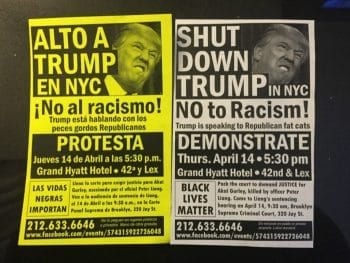
Too often during this election season, a discourse of “bad manners” has paraded as insight while working to hide the effects of power, politics, racial injustice and other forms of oppression.
The rhetoric of “incivility” often functions as a conservative ideological tool, working to silence critics by describing them as ill-tempered, rude and uncivilized. Politics, in this sense, shifts from a focus on substance to style — reworking the notion of critical thinking and action through a rulebook of alleged collegiality — which becomes code for the elevated character and manners of the privileged classes. Within this rhetoric, the wealthy, noble and rich are usually deemed to possess admirable character and to engage in civil behavior. At the same time, those who are poor, unemployed, homeless or subject to police violence are not seen as victims of larger political, social and economic forces. On the contrary, their problems are reduced to the depoliticizing discourse of bad character, defined as an individual pathology, and whatever resistance they present is dismissed as rude and uncivil.
As a rich white man who has intentionally embraced an “uncivil” persona, Trump has related to this discourse in unpredictable ways. By claiming he loves the uneducated and appealing to the crudest instincts of the mob, Trump elevates incivility to a performance — a pedagogy of righteous indignation — while removing it as a platform for a substantial political critique. The uncivil persona becomes a threat, a signpost for misdirected anger and a symbol of a mass in need of a savior.
There is more at issue here than ideological obfuscation and a flight from social responsibility on the part of the dominant classes; there is also a language of violence that serves to reproduce existing modes of domination and concentrated relations of power. In this instance, argument, evidence and informed judgment — when they hold power accountable or display a strong response to injustice — are subordinated to the category of unchecked emotions, a politics that embraces rude behavior and a propensity for violence. When deployed in a way that obfuscates the injuries of class, racism, sexism, among other issues, the discourse of incivility reduces politics to the realm of the personal and affective while cancelling out broader political issues such as the underlying conditions that produce anger, the effects of misguided resentment, and a passion that connects the body and mind.
As Benjamin DeMott has pointed out, the discourse of incivility does not raise the crucial question of why American society is tipping over into the dark politics of authoritarianism. On the contrary, the question now asked is “Why has civility declined?” Tied to the privatized orbits of neoliberalism, this is a discourse that trades chiefly in good manners, the virtues of moral uplift and praiseworthy character, all the while refusing to raise private troubles to the level of public issues. The call to civility confuses the relationship between anger and resentment, dismissing both as instances of faulty character and bad manners.
What happens to a democracy when incivility becomes a central organizing principle of politics? What happens to rational debate, culture and justice?
The US has become a country motivated less by anger, which can be used to address the underlying social, political and economic causes of social discontent, than by a galloping culture of individualized resentment, which personalizes problems and tends to seek vengeance on those individuals and groups viewed as a threat to American society. One can argue that the call to civility and condemnation of incivility in public life by the ruling elite no longer registers favorably among individuals and groups who are less interested in mimicking the discourse and manners of the financial elite than in expressing their resentment as they struggle for power, however rude such expressions might appear to the mainstream media and rich and powerful. Rather than an expression of a historic if not dangerous politics of unchecked personal resentment (as seen among many Trump supporters), we are witnessing a legitimate and desperately needed politics of outrage and anger — one that privileges the struggle for justice over an empty call for civility and acceptable manners.
Difference Between Anger and Resentment
[dropcap]A[/dropcap]nger is connected with injustice, while resentment is more about personalized pettiness.
We see elements of crucial anger among the many supporters of Bernie Sanders, as well as the Black Lives Matter movement and the Indigenous-led movement to stop the Dakota Access pipeline. Anger can be a disruption that offers the possibility for critical analysis, calling out the social forces of oppression and violence in which so many current injustices are rooted.
Meanwhile, resentment operates out of a friend/enemy distinction that produces convenient scapegoats. It is the stuff of loathing, racism and spontaneous violence that often gives rise to the spectacle of fear-mongering and implied threats of state repression. In this instance, ideas lose their grip on reality and critical thought falls by the wayside. Echoes of such scapegoat-driven animosity can be heard in Trump’s “rhetorical cluster bombs,” in which he stated publicly that he would like to punch protesters in the face, punish women who have abortions, bring back state-sanctioned torture and, of course, much more. Genuine civic attachments are now cancelled out in the bombast of vileness and shame, which has been made into a national pastime and central to a spectacularized politics.
Reflection no longer challenges a poisonous appeal to commonsense or the signposts of racism, hatred and bigotry. Manufactured ignorance opens the door to an unapologetic culture of bullying and violence aimed at Muslims, immigrants, Blacks and others who do not fit into Trump’s notion of “America.” This is not about the breakdown of civility in US politics or the bemoaned growth of incivility. Throughout its history, US society has been inundated by a toxic, racist ideology that oppresses and marginalizes Black people, Indigenous people and immigrants of color, and particularly since 9/11, has singled out Muslims as targets. It is a market-driven ideology that enshrines greed and self-interest, and a sustained attack on public values and the common good, fueled by the policies of a financial elite — much of it coded by both the Republican and Democratic political establishment.
Trump did not invent these forces; he simply brought them to the surface and made them the centerpiece of his campaign. As anti-democratic pressures mount, the commanding institutions of capital are divorced from matters of politics, ethics and responsibility. The goal of making the world a better place has been replaced by dystopian narratives about how to survive alone in a world whose destruction is just a matter of time. The lure of a better and more just future has given way under the influence of neoliberalism to questions of mere survival. As Zygmunt Bauman has argued in his books Wasted Lives and Consuming Life, entire populations once protected by the social contract are now considered disposable, dispatched to the garbage dump of a society that equates one’s humanity exclusively with their ability to consume.
The not-so-subtle signs of the culture of resentment and cruelty are everywhere, and not just in the proliferation of extremist talking heads, belligerent nihilists and right-wing conspiracy types blathering over the airways, on talk radio, and across various registers of screen culture. Young children, especially those whose parents are being targeted by Trump’s rhetoric, report being bullied more. Hate crimes are on the rise. And state-sanctioned violence is accelerating against Native Americans, Black youth, and others now deemed unworthy and disposable in Trump’s America.
In the mainstream media, the endless and unapologetic proliferation of lies become fodder for higher ratings, informed by a suffocating pastiche of talking heads, all of whom surrender to “the incontestable demands of quiet acceptance,” as Brad Evans and Julien Reid have argued in Truthout. Politics has been reduced to the cult of the spectacle and a performative register of shock, but not merely, as Neal Gabler observes, “in the name of entertainment.” The framing mechanism that drives the mainstream media is a sink-or-swim individualism and a shark-like notion of competition that accentuates and accelerates hostility, insults and the politics of humiliation.
Capitalism’s New Age of Bullying
[dropcap]C[/dropcap]harles Derber and Yale Magrass are right in arguing in Bully Nation that “Capitalism breeds competition and teaches that losers deserve their fate.” But capitalism also does more. It creates an unbridled individualism that embodies a pathological disdain for community, produces a cruel indifference to the social contract, disdains the larger social good, and creates a predatory culture that replaces compassion, sharing and a concern for the other. As the discourse of the common good and compassion withers, the only vocabulary left is that of the bully — one that takes pride in the civic-enervating binary of winners and losers. What has been on full display in the presidential election of 2016 is the merging of the culture of cruelty, the logic of egregious self-interest, a deadly anti-intellectualism, a ravaging unbridled anger, a politics of disposability, and a toxic fear of others. Jessica Lustig captures this organized culture of violence, grudges and resentment in The New York Times Magazine with the following comments:
Grievance is the animating theme of this election and the natural state of at least one of the candidates; Trump is a public figure whose ideology, such as it is, essentially amounts to a politics of the personal grudge. It has drawn to him throngs of disaffected citizens all too glad to reclaim the epithet “deplorable.” But beyond these aggrieved hordes, it can seem at times as if nearly everyone in the country is nursing wounds, cringing over slights and embarrassments, inveighing against enemies and wishing for retribution. Everyone has someone, or something, to resent.
It gets worse. In the age of a bullying internet culture, the trolling community has elected one of its own as president of the United States. Criticizing the pernicious trolling produced by political extremists should not suggest a generalized indictment of the internet and social media, since the latter have also been key tools in pushing back against Trump’s egregiousness. As the apostle of publicity for publicity’s sake, Trump has adopted the practices of reality TV, building his reputation on insults, humiliations, and a discourse of provocation and hate.
According to The New York Times, since announcing his candidacy, Trump used Twitter to insult at least 282 people, places and things. Not only has he honed the technique of trolling, he has also made it a crucial resource in upping the ratings for the mainstream media who, it seems, are insatiable when it comes to covering Trump’s insults. Trump has done more than bring a vicious online harassment culture into the mainstream, he has also legitimated the worst dimensions of politics and brought out of the shadows white nationalists, racist militia types, social media trolls, overt misogynists and a variety of reactionaries who have turned their hate-filled discourse into a weaponized element of political culture. This was all the more obvious when Trump hired Stephen K. Bannon to run his campaign. The former executive chairman of Breitbart News is well known for his extremist views and for his unwavering support for the political alt-right. One of his more controversial headlines on Breitbart read, “Would you rather have feminism or cancer?” He is also considered one of the more prominent advocates of the right-wing trolling mill that is fiercely loyal to Trump. Jared Keller in The Village Voice captures perfectly the essence of Trump’s politics of trolling. He writes:
From the start, the Trump campaign has offered a tsunami of trolling, waves of provocative tweets and soundbites — from “build the wall” to “lock her up” — designed to provoke maximum outrage, followed, when the resulting heat felt a bit too hot, by the classic schoolyard bully’s excuse: that it was merely “sarcasm” or a “joke.” In a way, it is. It’s just a joke with victims and consequences…. Trump’s behavior has normalized trolling as an accepted staple of daily political discourse.
One example of such vitriol was noted by Andrew Marantz’s profile for The New Yorker on Mike Cernovich, a prominent internet troll. He writes:
His political analysis was nearly as crass as his dating advice (“Misogyny Gets You Laid”). In March, he tweeted, “Hillary’s face looks like a melting candle wax. Imagine what her brain looks like.” Next he tweeted a picture of Clinton winking, which he interpreted as “a mild stroke.” By August, he was declaring that she had both a seizure disorder and Parkinson’s disease.
In the age of trolls and the heartless regime of neoliberalism [which the Democrats also unwaveringly supported and the Clintons have been prominent in selling], politics has dissolved into a pit of performative narcissism, testifying to the distinctive power of a corporate-driven culture of consumerism and celebrity marketing, which reconfigures not just political discourse but the nature of power itself. In spite of the large-scale protests against economic injustice that ranged from Madison to Occupy Wall Street, the teacher strikes that have emerged since the 2008 Wall Street collapse, the ensuing political corruption and the consolidation of wealth and power, millions of Americans turned to the politics of resentment.
Amid this turmoil, we cannot let our anger simply become an expression of misdirected resentment. It is time to wake up and repudiate the notion that capitalism and democracy are the same thing. We must use our anger to fight collectively for a politics that refuses to forget the crimes of the past, so it can imagine a different future. Such a struggle is not an act of incivility, but a call to educated hope, civic courage and the need to start organizing.
This totalitarian logic has been reinforced by the strange intersection of celebrity culture, manufactured ignorance and the cult of unbridled emotion, to inhabit a new register of resentment, which as Mark Danner points out in The New York Review of Books, takes “the shape of reality television politics.” Within such an environment, a personalized notion of resentment drives politics while misdirecting rage towards issues that reinforce totalitarian logic. Under such circumstances, the long-standing forces of nativism and demagoguery drive American politics and the truth of events is no longer open to public discussion or informed judgment. All that is left is the empty but dangerous performance of misguided hopes wrapped up in the fog of ignorance, the haze of political and moral indifference, and the looming specter of violence.
The rise of Donald Trump as a corporate-fueled celebrity troll represents the broader contempt for a politics of empathy and compassion. This contempt is the bedrock of a neoliberal formative culture that, as my colleague David Clark once remarked to me, “breeds horrors: the failures of conscience, the wars against thought, and the flirtations with irrationality that lie at the heart of the triumph of every-day aggression, the withering of political life, and the withdrawal into private obsessions.”
The issue is no longer whether politicians, such as Donald Trump, are about to lead us into a new age of authoritarianism and bigotry. Rather, we should be seeking to locate and challenge the forces that have produced these politicians. When individualized resentment and scapegoat-centered violence are normalized, we move closer to a police state and toward an age that forgets the totalitarian impulses that gave us Iraq, state-authorized torture, a carceral state, war crimes, a plundering of the planet, and much more. Trump is only a symptom, not the cause of our troubles. Global capitalism is the monster and Trump is its most dangerous, confused and hateful messenger.
Anger is a double-edged sword and can be transformed into various forms of productive resistance or it can be appropriated and manipulated as a breeding ground for resentment, hate, bigotry and racism. What is clear is that Trump knew how to turn such an odious appeal into both a performance and a spectacle — one that mimicked the darkest anti-democratic impulses.
The Struggle Continues
[dropcap]L[/dropcap]et’s hope the planet is around long enough to begin to rethink politics in light of this election of Donald Trump to the presidency, which ranks as one of the most sickening events in American political history. Democracy, however flawed, has now collapsed into Trump’s world, one led by a serial sexual groper, liar, nativist, racist and authoritarian. As my friend Bob Herbert mentioned to me recently, “Trump threatens everything we’re supposed to stand for. He’s the biggest crisis we’ve faced in this society in my lifetime. The Supreme Court is lost for decades to come. His insane tax cuts will only expand (and lock in) the extreme inequality we’re already facing. I don’t need to provide a laundry list for you. The irony of ironies, of course, is that the very idiots, racists, misogynists and outright fools who put him in the presidency will be among those hammered worst by his madness in office.”
The strategy of the left will be set back for years as a result of this election, given Trump’s propensity for vengeance, crushing dissent and sheer animosity toward anyone who disagrees with him. When he withdraws the US from the Paris Accords, goes after Black youth with his call for racial profiling, lowers taxes for the rich, deregulates business, sets back the Supreme Court for decades and expands the police state as he begins mass deportations, maybe we should rethink where the levers of power lie.
Amid this turmoil, we cannot let our anger simply become an expression of misdirected resentment. It is time to wake up and repudiate the notion that capitalism and democracy are the same thing. We must use our anger to fight collectively for a politics that refuses to forget the crimes of the past, so it can imagine a different future. Such a struggle is not an act of incivility, but a call to educated hope, civic courage and the need to start organizing.
![]()
 Currently holds the Global TV Network Chair Professorship at McMaster University in the English and Cultural Studies Department and a Distinguished Visiting Professorship at Ryerson University. His books include: American at War with Itself, Zombie Politics and Culture in the Age of Casino Capitalism (Peter Land 2011), On Critical Pedagogy (Continuum, 2011), Twilight of the Social: Resurgent Publics in the Age of Disposability (Paradigm 2012), Disposable Youth: Racialized Memories and the Culture of Cruelty (Routledge 2012), Youth in Revolt: Reclaiming a Democratic Future (Paradigm 2013). Giroux’s most recent books are America’s Education Deficit and the War on Youth (Monthly Review Press, 2013), are Neoliberalism’s War on Higher Education, America’s Disimagination Machine (City Lights) and Higher Education After Neoliberalism (Haymarket) will be published in 2014). He is also a Contributing Editor of Cyrano’s Journal Today / The Greanville Post, and member of Truthout’s Board of Directors and has his own page The Public Intellectual. His web site is www.henryagiroux.com.
Currently holds the Global TV Network Chair Professorship at McMaster University in the English and Cultural Studies Department and a Distinguished Visiting Professorship at Ryerson University. His books include: American at War with Itself, Zombie Politics and Culture in the Age of Casino Capitalism (Peter Land 2011), On Critical Pedagogy (Continuum, 2011), Twilight of the Social: Resurgent Publics in the Age of Disposability (Paradigm 2012), Disposable Youth: Racialized Memories and the Culture of Cruelty (Routledge 2012), Youth in Revolt: Reclaiming a Democratic Future (Paradigm 2013). Giroux’s most recent books are America’s Education Deficit and the War on Youth (Monthly Review Press, 2013), are Neoliberalism’s War on Higher Education, America’s Disimagination Machine (City Lights) and Higher Education After Neoliberalism (Haymarket) will be published in 2014). He is also a Contributing Editor of Cyrano’s Journal Today / The Greanville Post, and member of Truthout’s Board of Directors and has his own page The Public Intellectual. His web site is www.henryagiroux.com.






